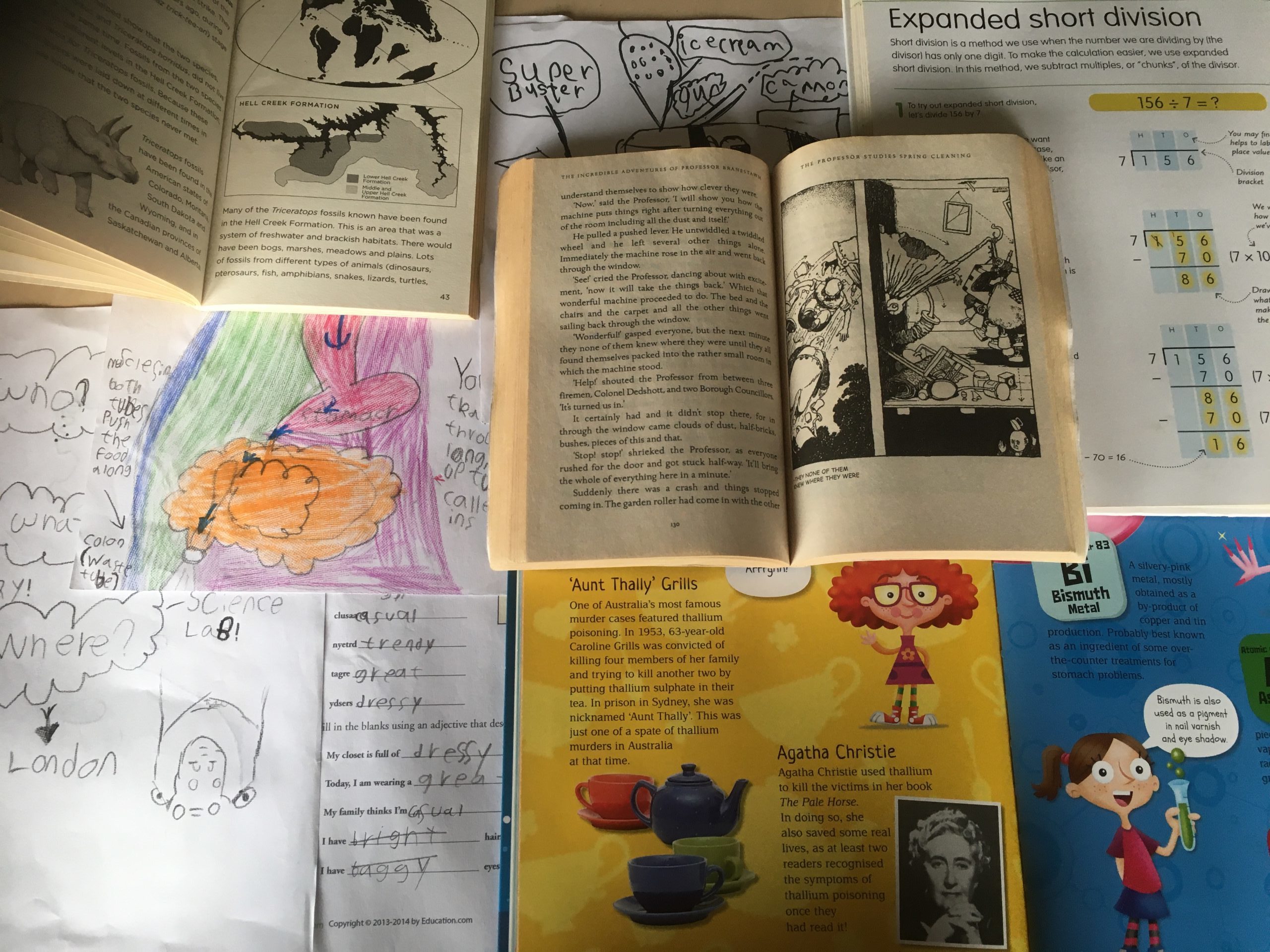
Is this a skill, topic or project-based lesson?
Lesson planning for homeschool starts with a lesson objective – a purpose to the lesson.
The learning objective may be to teach/practice a skill, to teach a topic or expand knowledge about a specific subject. For the lesson to reach its objective, the student needs the skills, the knowledge and the means to learn, record & process that knowledge.
Making sure home-ed students know why they’re learning, what the purpose is and how they must demonstrate that learning helps keep lessons relaxed.
Skill-based Lessons
Skill-based lessons are to teach specific tools to help students gain, use and process knowledge.
- The skill may be specific to a subject – calculating percentages / using quotation marks
- The skill may be adding to the student’s cross-subject education toolbox – how to create a spreadsheet / crop an image / reference citations.
Skill-based lessons can be practice sessions for already learnt skills, like handwriting or using a compass*.
Topic-based Lessons
Topic-based lessons have broader lesson objectives than skill-based lessons; the lesson objective is to explore, teach or expand knowledge about a specific aspect of a subject – a date in history, an aspect of climate change, a mathematical concept .
Project-based Lessons
Project-based lessons ask students to combine the skills and knowledge they’ve learnt to create a record of their knowledge of a topic/subject.
(Project-based lessons are a great way of tracking progress for self-led and interest-led learning.)
None of these lesson types stands alone in a vacuum; much of the time the lesson styles will overlap by necessity – but from a planning perspective it can be helpful to think of lessons as skills, topic, or project-based to shape the structure of the lesson and ensure the students have the tools to complete the lessons proficiently.
Combining lessons teaching learners tools/skills with lessons teaching knowledge, gives students context and purpose for learning, which in turn motivates them for a particular purpose.
‘If I learn A, I will be able to do B.
My goal is B.
So the sooner I complete A, the quicker I can reach my goal.‘
Skill, topic and project-based lessons
- Lesson Objective: To Write a Book List
- At KS1-2, the tools the pupils will need are a pencil and ruler. Information required: Book name/author
- At KS3, students should be able to write a list in a spreadsheet and expand the information the list contains. Information required: Book name/Author/Publisher/Publication Date/Genre
- By KS4, students could be expected to add web-links into lists in spreadsheets, provide ratings, be confident using citations; alternatively, KS4 pupils studying computer science could be asked to write a programme to collate the information in the book list.
Tools needed:
- KS1-2: Motor skills to hold a pen/use a ruler / typing skills
- KS3: Ability to create basic spreadsheets
- KS3/4: Ability to create complex spreadsheets using formulas
These lessons would be skill-based – the goal from a teaching perspective is not to write a list but to learn how to write a list.
A topic-based lesson could follow:
- Lesson Objective: Choose a book from the list, write a book review.
and similarly, a project-based lesson could follow that:
- Lesson Objective: Choose two books of the same genre. Write a comparison of the two and explain which you’d recommend reading first and why.
Lesson planning by thinking in terms of skills, topics and projects makes it easy to
(a) plan for more than one lesson at a time
(b) make sure topic/project lessons flow smoothly because students are able to focus on the information/task, not the skill they need to demonstrate.
Additionally, for you as the home educator, having a formula to use when prepping and planning lessons makes it quicker and easier to prepare lessons across subjects.
When lesson planning, think about the skills students need to complete any tasks – teach those first.
Introduce a new topic in a way that asks students only to use skills they’re confident with – if handwriting is a struggle, allow them to type, if explaining in written words is difficult, ask them to verbally or visually explain what they’ve learnt instead of setting a written assignment.
If setting students a project task on a specific subject, talk through which previously covered topics could be included or used as a reference – a project is essentially a research based unit study extension exercise.
This seems simple enough but it took me a while to realise how easy it can be to overwhelm home learners by setting them a task without first outlining the skills they’ll need to use/demonstrate. If I’d just ask them to ‘write a book list’, for example, there might be umming and ahhing instead of getting down to the task: If I told asked to write a book list using bullet points, they’d immediately get down to work.
Children need more clarity than we might think and unless we’ve explicitly explained what and how we expect them to complete tasks, they can struggle to figure it out themselves.
Reminding them that to complete the task they’d need to use bullet points (a skill covered previously) removes any ‘where do I start’ questions in their heads. It’s a simple example, a book list, and obviously by KS4 lessons are going to be much more complex, however the same logic applies for all lessons for all ages:
Clearly identify the task (as your lesson objective), explain the task clearly and concisely to learners and remind them of the tools and skill sets they can use to complete (and make the most of) the lesson.
*This is Not a Maths Book is a great book for practicing maths skills.



